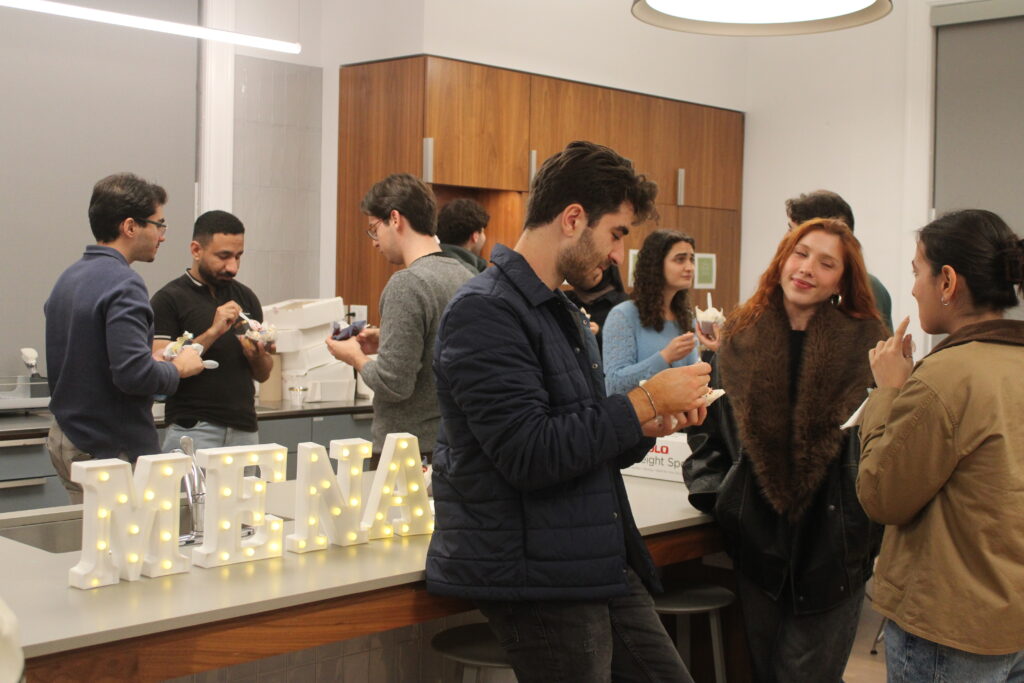Lifestyle
Students Honor One-Year Milestone of MENA Cultural Suite at Yale

Students at Yale University gathered on March 15, 2024, to celebrate the first anniversary of the Middle Eastern and North African (MENA) cultural suite. The event marked a significant milestone for the MENA community, which has seen increased support and recognition since the suite’s establishment a year ago.
The MENA cultural suite officially opened following a commitment from former University President Peter Salovey in December 2023. This initiative aimed to enhance support for students affected by the ongoing Israel-Hamas conflict and responded to years of advocacy from students seeking a dedicated space on campus.
Key Moments in MENA Cultural Community
During the anniversary celebration, Iman Ali, Yale College’s director of student engagement, highlighted the suite’s impact on the MENA community. Since its inception, the cultural suite has hosted significant events, including Yale’s inaugural MENA Heritage Month and the recognition of the first group of MENA graduates.
“MENACC embodies humanism — a shared belief in dignity, dialogue, and cultural understanding,” Ali stated, emphasizing the suite’s role in fostering a sense of belonging among students.
Many students expressed appreciation for the dedicated space, which they believe enhances their university experience. Some attendees voiced hopes for increased funding to further develop the cultural suite’s offerings. Lena Ginawi, assistant director of the MENA cultural community, noted that securing this space was a long-term effort that involved years of student activism and collaboration with campus partners.
A Space for Identity and Connection
Before the establishment of the MENA cultural suite, many students sought support at the Asian American Cultural Center. Ginawi reflected on this history, noting the importance of the center in creating programming for MENA students. “It’s really a part of our history,” she remarked.
Basma Elbagory, the undergraduate student coordinator for the MENA cultural community, described the suite as “a home away from home” where students can connect with others who share similar identities and beliefs. One of her most impactful experiences involved organizing a faculty panel discussing the implications of a ceasefire in Gaza.
Looking ahead, Elbagory expressed a desire for Yale to formally recognize MENA students as a distinct racial or ethnic category in demographic data collection. She believes this recognition would increase visibility and help the MENA cultural community reach more students. “So many people use our space that we don’t always have the capacity to support all the events and initiatives we want to,” she noted, emphasizing the need for additional resources.
The celebration concluded with a screening of a short film directed by Daphne Wu, which documented the founding and first year of the MENA cultural community. Wu described the significance of capturing this milestone on film, stating, “The MENA community has been advocating for this space for so long. It’s really moving to encapsulate how much having a dedicated space means to MENA students at Yale.”
The MENA cultural suite is located on the first floor of 305 Crown Street, serving as a vital hub for cultural engagement and community building at Yale.
-

 Lifestyle3 months ago
Lifestyle3 months agoLibraries Challenge Rising E-Book Costs Amid Growing Demand
-

 Sports3 months ago
Sports3 months agoTyreek Hill Responds to Tua Tagovailoa’s Comments on Team Dynamics
-

 Sports3 months ago
Sports3 months agoLiverpool Secures Agreement to Sign Young Striker Will Wright
-

 Lifestyle3 months ago
Lifestyle3 months agoSave Your Split Tomatoes: Expert Tips for Gardeners
-

 Lifestyle3 months ago
Lifestyle3 months agoPrincess Beatrice’s Daughter Athena Joins Siblings at London Parade
-

 World3 months ago
World3 months agoWinter Storms Lash New South Wales with Snow, Flood Risks
-

 Science3 months ago
Science3 months agoTrump Administration Moves to Repeal Key Climate Regulation
-

 Business3 months ago
Business3 months agoSoFi Technologies Shares Slip 2% Following Insider Stock Sale
-

 Science3 months ago
Science3 months agoNew Tool Reveals Link Between Horse Coat Condition and Parasites
-

 Science2 months ago
Science2 months agoSan Francisco Hosts Unique Contest to Identify “Performative Males”
-

 Sports3 months ago
Sports3 months agoElon Musk Sculpture Travels From Utah to Yosemite National Park
-

 Science3 months ago
Science3 months agoNew Study Confirms Humans Transported Stonehenge Bluestones









